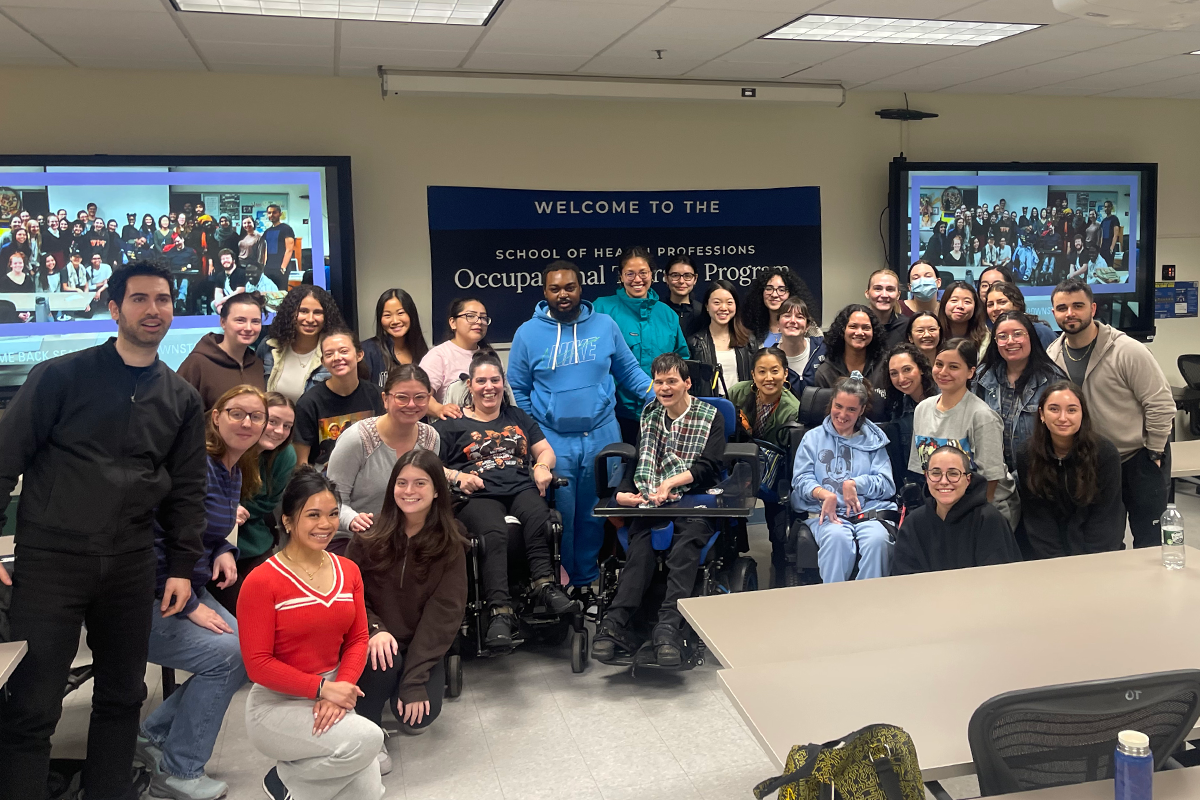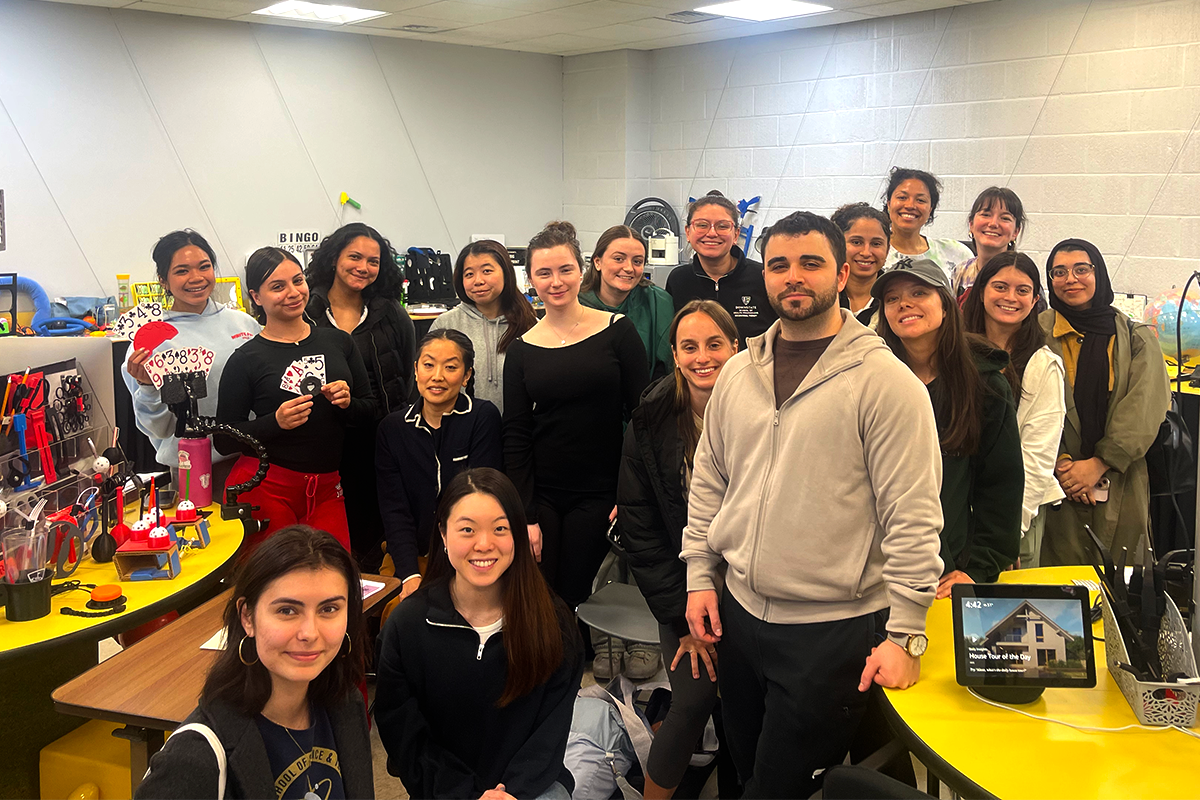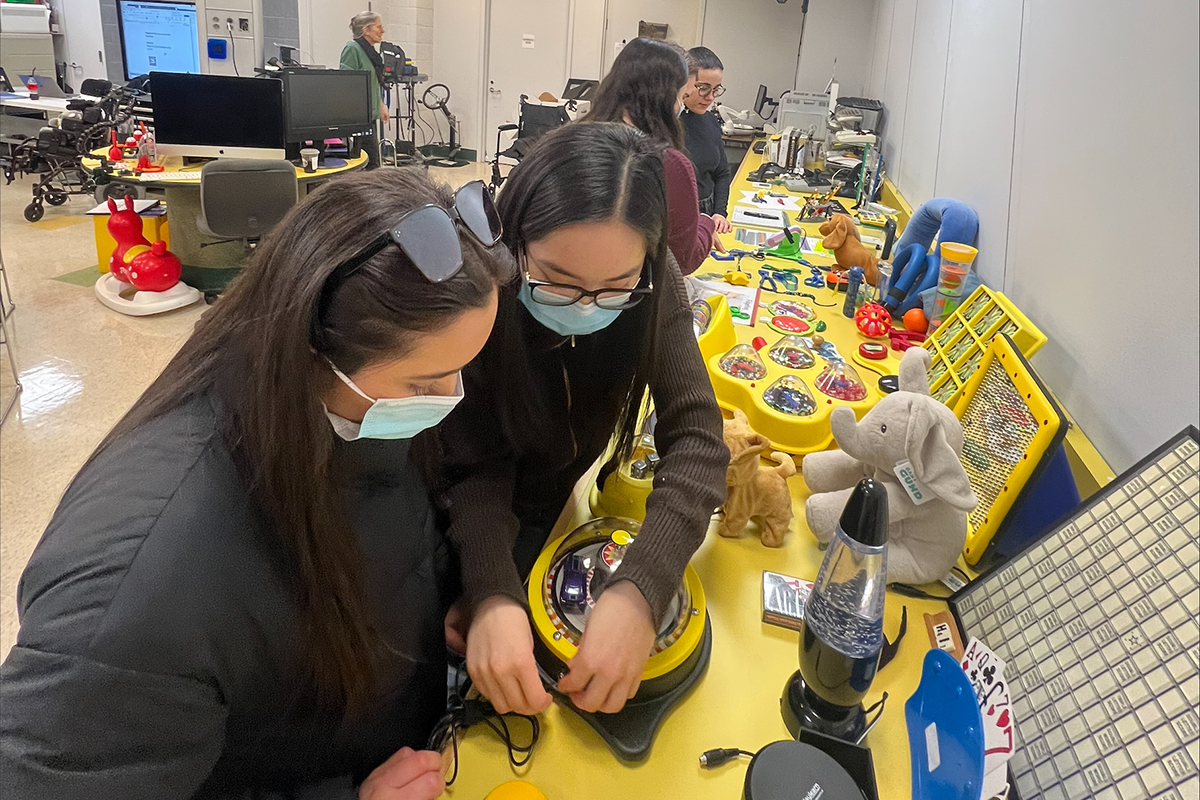Transforming Occupational Therapy Training
By Office of the President | May 6, 2025

At Downstate, the Occupational Therapy Program deepens its decade-long partnership with Adapt Community Network—formerly United Cerebral Palsy of New York—by giving students direct access to individuals living with disabilities. Through this collaboration, students learn far more than clinical techniques. They gain insight from those who use assistive technology to navigate the world daily.
In a recent session, students sat down with three adults—Eric, Stephanie, and Robin—who live with cerebral palsy and serve as advocates for disability awareness and inclusion. Each shared powerful stories about navigating public spaces, securing healthcare, and protecting their autonomy. They spoke with honesty and urgency.
They described their wheelchairs as essential to their daily lives—tools that support independence, mobility, and identity. Robin encouraged students to view wheelchair operation and safety as fundamental clinical skills. She emphasized the importance of understanding how mobility devices function and urged future healthcare professionals to approach their use with the same responsibility required in any patient-centered setting.

The conversation moved far beyond the physical equipment. The speakers revealed the everyday obstacles baked into public spaces. They cited ramps built too steeply, doorways designed too narrowly, and signage or seating that excludes many disabled individuals by design. These design flaws, they explained, don’t just create inconvenience—they send messages about who belongs. “Accessibility,” they emphasized, “isn’t a checklist—it’s about dignity.”
Each described painful encounters in clinical care, where providers ignored their voices, spoke around them, or assumed cognitive limitations. These moments were personal, unsettling, and unforgettable. They were personal, unsettling, and unforgettable. Students left the session with a clear understanding: any healthcare system built without the voices of disabled people will inevitably fail them.
Beyond the classroom, students also engage with Adapt’s TechWorks Inc., an assistive technology lab in Brooklyn. There, they explore communication devices, mobility tools, and aging-in-place supports. These visits allow students to do more than observe. They test, evaluate, and recommend assistive technologies designed to meet real-world needs—building practical skills and professional empathy.

This hands-on exposure reinforces Downstate’s mission to train occupational therapists who respect the function of a device and the dignity of the person who relies on it. Faculty leaders Efekona Nuwere, Ed.D., OTR/L, Chair, Occupational Therapy; Vikram Pagpatan, Ed.D., OTR/L, Associate Professor and Admissions Coordinator; and Allen N. Lewis, Ph.D., CRC, Dean, School of Health Professions, anchor this community-centered approach to education.
By centering lived experience in the curriculum, Downstate ensures its graduates enter the field with more than technical competence. They carry empathy, cultural humility, and a deep respect for the communities they will serve.